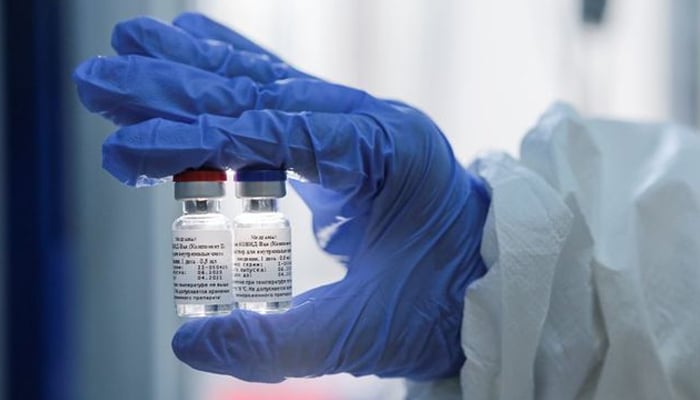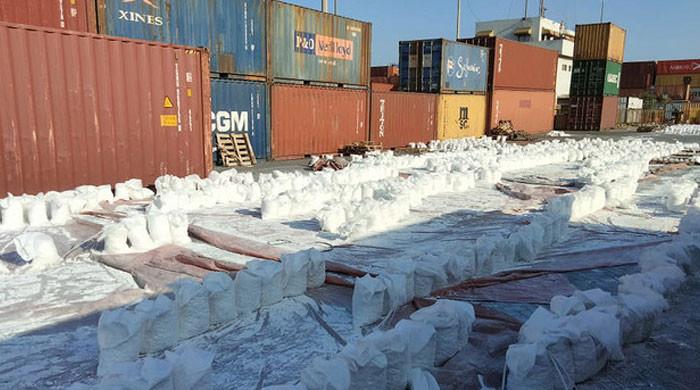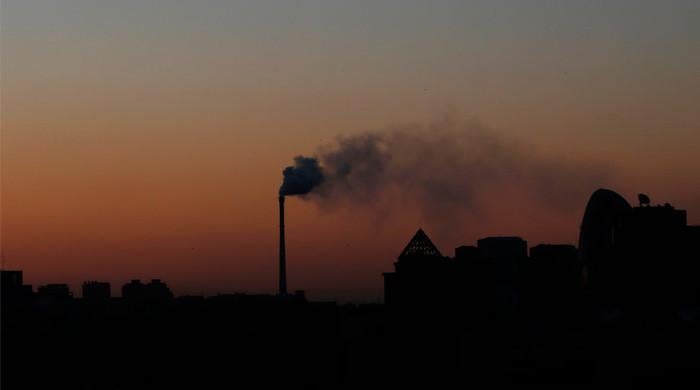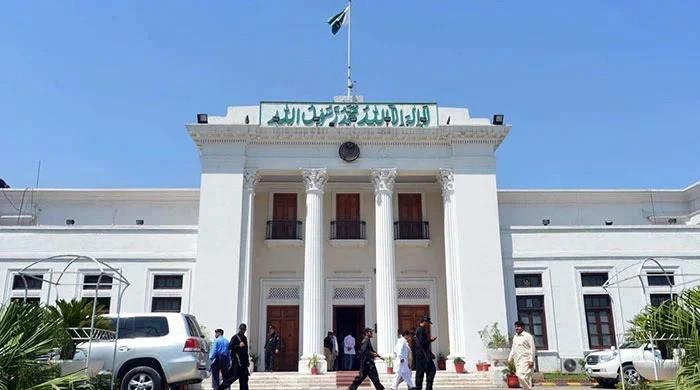Pakistan in talks to secure coronavirus vaccines for most vulnerable segment of population
All major vaccines are and will be under consideration by the government, says Dr Faisal Sultan
December 03, 2020

As coronavirus cases across the country rise, health authorities in Pakistan are in talks to secure coronavirus vaccine doses for the most vulnerable segment of the society. Earlier, Pakistan had responded late to vaccine trials.
Participation in vaccine trials is an automatic route to secure supplies and at preferential prices. Dr Faisal Sultan, Special Assistant to the Prime Minister for Health, told Geo News that all major vaccines are and will be under consideration by the government.
The approval of the Pfizer BioN Tech vaccine by the UK Regulator on December 2 for emergency use and the imminent approval of a Chinese vaccine by Sinopharm for public use comes as a ray of hope for the most vulnerable segment of the population.
Read more: Pakistan to provide free coronavirus vaccine to citizens
Pakistan was offered the vaccine trial on April 22, 2020, by the Chinese state enterprise company Sinopharm. Since Pakistan did not take part in the initial process, the company went to the UAE and other countries where it conducted the final phase three trials in July.
The UAE conducted the vaccine's trial on 45,000 residents and its prime minister, foreign minister, other members of the government, members of the health force and armed forces secured the vaccine under an emergency authorisation.
Sinopharm is about to submit its final phase three trial results to the vaccine regulator in China so that its vaccine can be approved for public use. Around 30 countries have secured supplies from Sinopharm after becoming part of its trial and will have first rights to the 300 million doses available on approval by the Chinese regulator.
Read more: Pakistanis join final trials for China-made coronavirus vaccine
Next year, it plans to produce over one billion doses. It's reliably learnt that Pakistan's health authorities joined the Sinopharm vaccine trial in the UAE where an estimated 3,200 Pakistanis participated in the trial.
It has also been learnt that authorities in Pakistan are in talks to secure a reasonable quantity from Sinopharm to vaccinate the most vulnerable in Pakistan.
A phase three trial of the Chinese vaccine CanSinoBio started in Pakistan in September and so far, 10,000 Pakistanis have participated in the trial at five centers across the country.
The target is to vaccinate 18,000 people in Pakistan. Dr Faisal Sultan, the SAPM on health, had revealed that people are still enrolling for the trial and it will be weeks before preliminary results are known. The same vaccine is undergoing trials in six other countries.
Due to the tabulation of results from seven countries covering an estimated 40,000 people and the time it will take in the process to get the vaccine approved, CanSinoBio doses are expected to be supplied to Pakistan in the second quarter of the next year.
Sinopharm has already administered one million doses to high-risk groups and members of the government in China and other countries during its trial stage.
Read more: PM Imran Khan okays advance booking of COVID-19 vaccine
On approval by the Chinese regulatory authorities, it's learnt that Sinopharm will submit its registration documents to the Drug Regulatory Authority of Pakistan (DRAP) within the current month.
If commercials and supplies are locked, the initial supply from Sinopharm to Pakistan is expected in the first couple of months in 2021 to secure health workers, those above 65, and members of the armed forces and other frontline segments.
Pfizer Asia Pacific spokesperson shared with GEO TV that discussions are underway with Pakistan’s Ministry of Health, disclosing that for now, Pfizer will do government based contracts due to heavy demand.
To overcome the extreme challenge of minus 70 degrees for Pfizer BioN Tech vaccine storage, the spokesperson shared that Pfizer has made specially designed, temperature-controlled thermal shippers, in which the doses will arrive which can be used as temporary storage units.
The shipper can maintain the recommended storage condition -70°C ± 10°C for 10 days unopened, which allows for it to be transported globally. Once opened, and if it is used as temporary storage by a vaccination centre, it can be used for a total of 30 days with re-icing every five days. Pfizer Pakistan has signed an MoU with Chughtai Labs to set up cold chains and vaccination centers in Pakistan.
Read more: Cabinet approves allocating $150 million for coronavirus vaccine
Moderna's vaccine also needs to be stored at low temperatures. However, the Chinese vaccines and the Oxford-AstraZeneca vaccine need normal refrigeration to store its products.
Talks are underway between Oxford Astra Zeneca and our Ministry of Health officials as well and it is expected that Pakistan will also receive a sizeable quantity of approved vaccine from the global COVAX alliance at some point in the coming year.
Besides availability, factors like efficacy, technology platform, and pricing will determine the final decisions by the Ministry of Health. There are multiple technologies involved as the approved vaccines are likely to be based on Genetic vaccines (Pfizer BioN Tech, Moderna), viral vectors (Oxford-AstraZeneca, CanSino Bio), and inactivated (Sinopharm and others).
However, considerations may vary between securing the most vulnerable among the masses and the rest of the population. Dr Faisal Sultan had indicated in his latest press conference that an inter-ministerial committee will make the final decisions regarding the procurement of vaccines. Arrangements are being made at DRAP to process the approval and registration of these vaccines on a fast-track basis.
Read more: NCOC finalises coronavirus vaccine procurement recommendations
As per data by the Launch & Scale Speedometer, a project supported by Bill & Melinda Gates Foundation, till November 30, high income and middle-income countries purchased cover 7.1 billion doses, with another 2.6 billion doses being reserved or being negotiated with countries. The purchases for the Global Covax Program for low-income countries are only around 700 million doses which are low and pose a challenge for a very large segment of the global population.
The scarcity of vaccines and challenges in availability is likely to result in a black market for vaccines and criminalization of its supply chain. There is talk of vaccine tourism going around as well, with travel companies offering people packages to visit the USA to get vaccinated and enjoy the holidays in-between.











